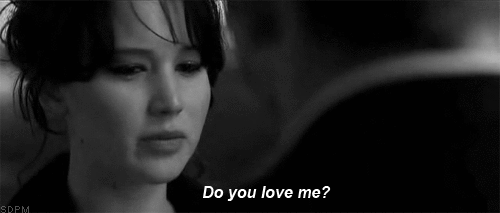Jennifer Lawrence Isn’t the Only Reason to See Catching Fire
The Hunger Games: Catching Fire Philadelphia showtimes.
It’s not all about Jennifer Lawrence. OK, it pretty much is. As talented as she is eminently lovable (that’s kind of a talent too, right?), the Oscar winner is the face that launched a thousand she’s-just-like-us proclamations, a shockingly sincere starlet in a field characterized by uncomfortable staring and needy thespian bullshit. She’s a bit of a Hollywood unicorn, an actor whom everyone feels comfortable admiring without having to file any paperwork with the National Bureau of Celeb-Crush Caveats.

OMG YES J-LAW!

Stoppit, girl. We already said we love you, Kate Gosselin cut and all.
Clearly Lawrence — who is the same person as Laurence Olivier, according to Donald Sutherland — is the most obvious thing to like about Catching Fire, the textbook-dark followup to last year’s The Hunger Games. But press beyond that globally accepted truth and you’ll find a blockbuster followup more mature and graceful than its predecessor, a movie that burrows under the skin in such a calculated manner that it’s easy to forget that it’s ostensibly for children. It’s not exactly a triumph of subtlety, but stacked up against its competition in the YA book-to-theater category, it’s as good as it gets.
Catching Fire picks up shortly after Katniss (Lawrence) and her moody partner Peeta (Josh Hutcherson) game the system to win the 74th annual Hunger Games, the best/only bit of reality programming in a dusty dystopian world where the 1 percent diddles itself to innocent kids of the 99 slaughtering each other on the small screen. But the competition, put in place as a punishment for a long-forgotten revolution, doesn’t end with the final bell.
All that handy-with-a-bow hunter Katniss wants to do is hang with her family and coal-smeared boyfriend Gale (Liam Hemsworth) in her hometown District 12, coincidentally similar to the Appalachian setting in Lawrence’s 2010 breakthrough, Winter’s Bone. But Katniss and Peeta, mentored by perma-drunk past winner Haymitch (Woody Harrelson), are required to take a victor’s lap, parading around the fabricated love that saved their skins in the Games.
President Snow (Sutherland), as cunning as he is follicularly gifted, recognizes the not-unlike-real-life hold Katniss has on the downtrodden population that struggles beyond the opulent Capitol. Fearing she’ll rise to Che-ish figurehead prominence and gas the flames of a second rebellion, he calls for a special session of the kill-or-be-killed Games, with a field comprising nothing but past winners, most of them adults. Dropped into a tropical rainforest death-trapped by architect Plutarch (Philip Seymour Hoffman), Katniss and Peeta must once against form tenuous alliances, relying on their strengths and wits to make it out at least partially alive.
So much has been written about smart, confident, self-reliant Katniss as a role model for young women — most of it positive, with occasional fits of parental worry over the fact that, in addition to embodying the traits we hope our daughters possess, she’s really good at murdering people. (It hasn’t stopped Nerf from releasing a girl-oriented line of toy bows.) But her character is not the only one with a social reflection. Hutcherson, who will surely skewer the franchise when he hosts SNL this weekend, plays his Peeta with a sort of big-britches apprehension, a poor kid swept up in a rich man’s game. Sam Claflin and Jena Malone, as hard-to-read competitors Finnick and Johanna, provide much-needed new voices to the conversation that swell beyond first-glance archetypes. And the emergence of Prim (Willow Shields), Katniss’ talented younger sister, fashions familial wrinkles that were breezed over in the original. J-Law’s still the queen, but her court is sharper than ever.
Follow @DrewLazor on Twitter.


